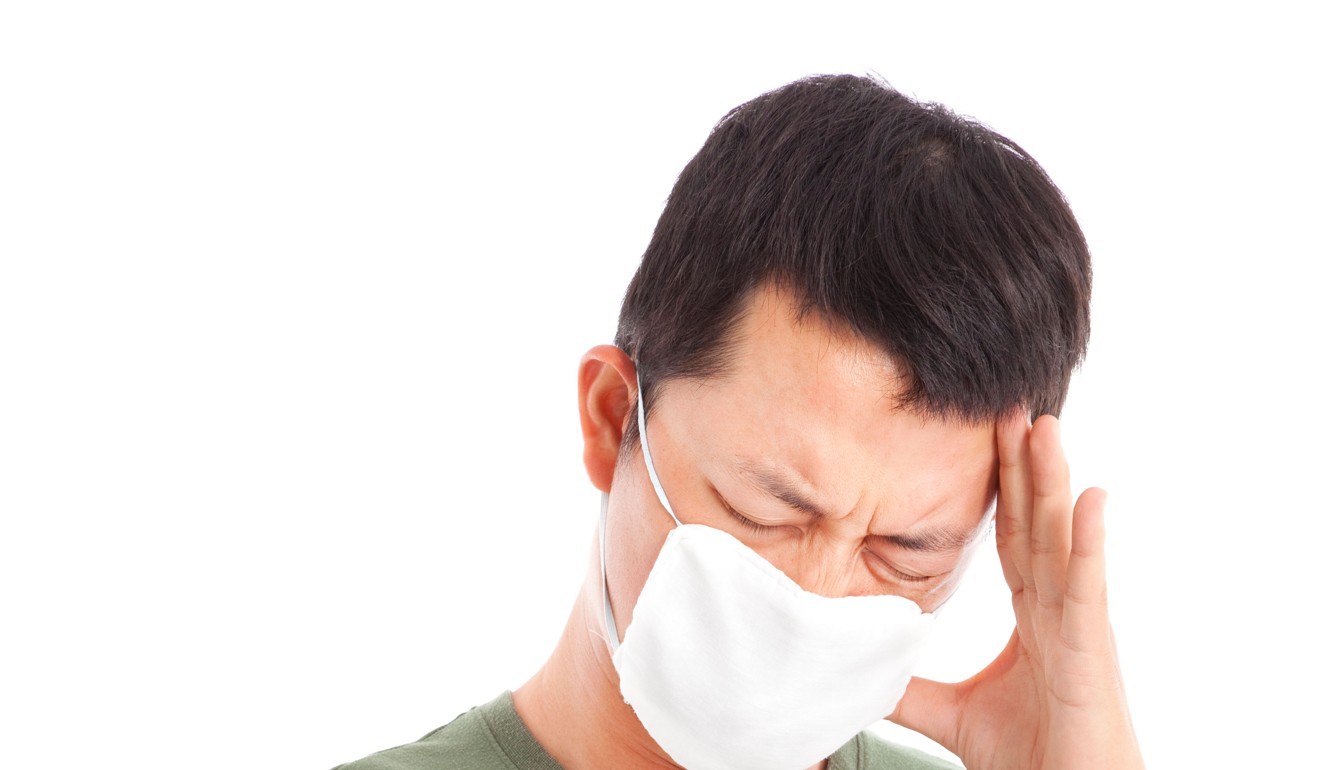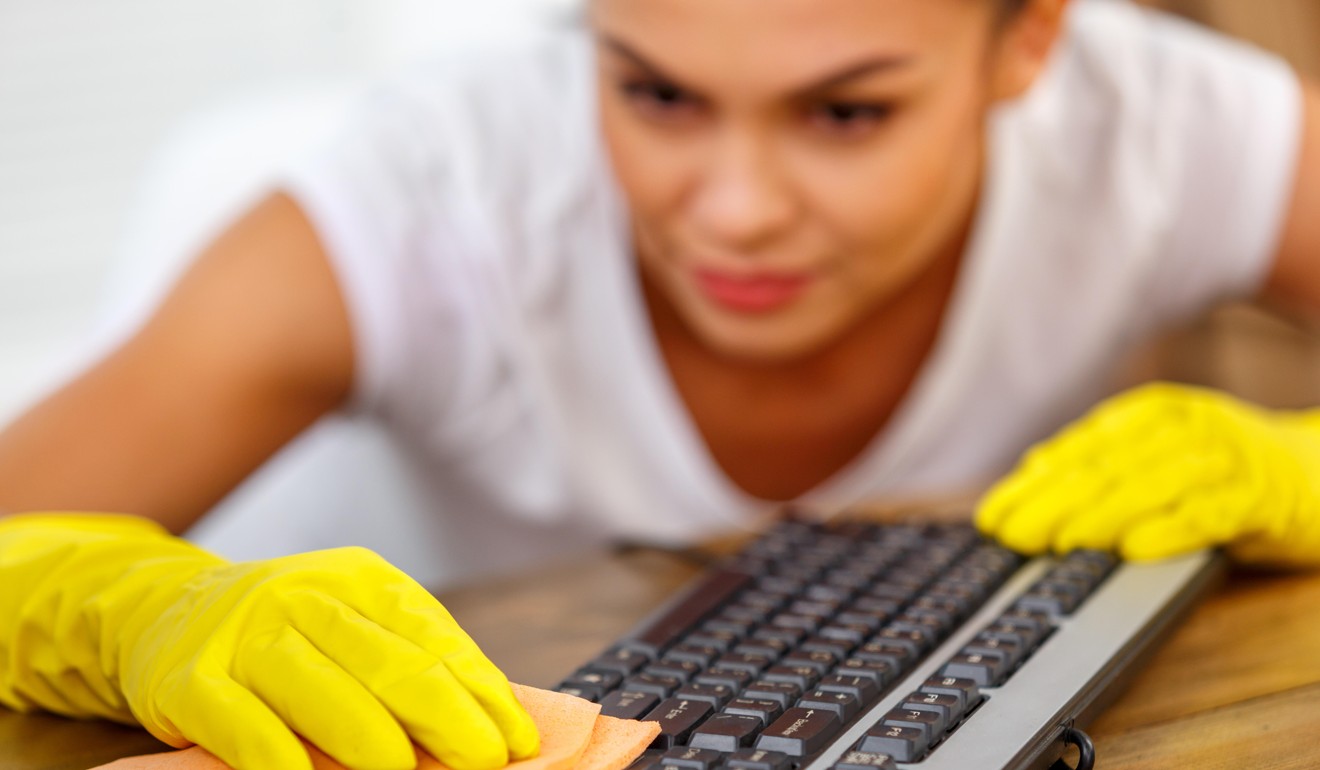
How to boost your child’s immune system and stop germs in their tracks before you get infected
There’s no magic pill to boost your body’s immune response to infections such as the flu, but there are some simple steps to help build up your own defences
When children fall ill, infections spread through schools like wildfire and can bring whole homes down as parents fall prey to whatever the latest infection is. So how can we strengthen our defences, and why are some people more resilient than others?
Explainer: why superbugs in Hong Kong are a concern and what’s to be done about them
Dr Adrian Wu, a specialist in allergy and immunology at Hong Kong’s Centre for Allergy and Asthma Care, says buffering our immunity isn’t rocket science. We need to adopt a common-sense approach, with “balanced nutrition, adequate rest, exercise, avoidance of alcohol, drugs, smoking, and enough sunlight exposure”.

He adds: “There are specific measures [that can be taken] such as vaccinations to boost an immune response to specific infections, but there is no magic pill.”
Dr Lee Tak-hong, a specialist in immunology and allergy, and director of the Allergy Centre at Hong Kong Sanatorium and Hospital, agrees.
His advice to patients is to adopt a healthy lifestyle: exercise regularly, have plenty of fresh air (although in Hong Kong, he observes, “that’s easier said than done”), eat a balanced diet, don’t smoke, don’t drink too much alcohol, and breast feed babies to promote good health.
What you need to know about this year’s unusual winter flu surge in Hong Kong
Can antioxidants and superfoods supercharge our defences? Dr Wu is not convinced.
“A lack of certain nutritional elements can compromise [our] immune response,” he says. “There is no evidence to suggest that additional doses on top of an adequate diet will provide extra benefits.
“Certain people, such as alcoholics, vegans, smokers, might benefit from supplementation due to their lifestyle choices, but a healthy person probably won’t.”

There are a number of published papers, says Lee Tak-hong, on the potential benefits of different antioxidants on cellular functions, and this has prompted many human trials. But, he says, there are as many studies suggesting some benefit as there are showing no change.
If [your children] have an illness like the flu or an eye infection, do everybody a favour and establish with your doctor whether it’s contagious or not
Personal hygiene, including hand washing and avoiding sharing utensils, and keeping sick children at home can help stop the spread of germs. “It is good practice for teachers and parents to encourage hand washing and wearing a mask to prevent the spread of respiratory infections,” Lee Tak-hong says.
Professor Regina Lee, president and founder of the Hong Kong School Nurses Association, says people may “find it helpful to boost their intake of vitamin D”.
“A recent study found that vitamin D supplements might make a person less likely to have an acute respiratory tract infection. Vitamin D deficiency has also been linked to a weakened immune system,” she says.
Being outside for 10-15 minutes each day is another way to reap the benefits of this “sunshine vitamin”.
Be mindful of stress levels, Regina Lee warns. “Stress is a normal part of life, and it can even be healthy in small increments. But chronic stress can take a toll on your body, make you sick, and lower your body’s natural immune response. This can delay healing, increase the frequency and severity of infections, and aggravate existing health problems,” she says.

If you gain weight in winter, try spending more time in the sun at this time of year to boost your vitamin D levels
If you’re stressed, chances are you aren’t sleeping well, making you more prone to infection. While we sleep, our immune system releases proteins called cytokines. We rely on their increased production to deal with infection and inflammation, as these molecules aid cell-to-cell communication in immune responses, triggering cells to move towards areas of infection and inflammation.

What is Regina Lee’s advice for parents? Keep a watchful eye on your children and have a thermometer to take their temperatures. Fever, she says, “is a sign that your child’s body is fighting germs, and it’s a common symptom of infections like flu. If it’s 101 degrees Fahrenheit (38.3 degrees Celsius) or higher, wait until your child is fever-free for at least 24 hours before sending her back to school.”
Power naps: now there’s scientific proof of their health benefits, what are sleep-deprived Hongkongers waiting for?
She adds: “If they have an illness like the flu or an eye infection, do everybody a favour and establish with your doctor whether it’s contagious or not.”

Five ways to stop the spread of germs in the home
Carolyn Forte, director of the Good Housekeeping Home Appliances, Cleaning Products, and Textiles Lab, in New York, offers time-tested tips to prevent the spread of germs.
1. Wash your hands often
Soap up between your fingers and don’t forget your thumbs, she advises. Scrub for about 20 seconds. She prefers soap in a liquid pump bottle, since “you can even touch the pump with your elbow to get the soap out”.

2. Isolate toothbrushes
Once a household member has a cold, separate their toothbrush from the rest of the pack to avoid germ contamination. After the person gets well, replace the toothbrush or toothbrush head with a new one.
3. Launder towels and bedding frequently
If possible, put the sick person in a separate room to sleep, to prevent the spread of germs and preserve your precious sleep. If you must share the same bed, wash sheets frequently in hot water. It even helps to wash just the pillowcases every few days. Bath towels should be washed every day or two.
4. Consider disposables
Give the sick person a roll of paper towels to use when washing hands in the bathroom, instead of using a communal towel. Let the sick person drink out of paper cups that can be thrown out, instead of having to wash glasses in hot water to kill any germs. If washing the sick individual’s plates or flatware in a dishwasher, select a sanitising cycle if yours has one, to bump up the temperature of the final rinse.
5. Keep remote controls and keypads clean
Flu sufferers are likely to spend long hours clicking through TV offerings or surfing online. Keep a container of antibacterial wipes around to clean the remotes and keypads daily. Clean light switches and doorknobs with them, too.
Additional reporting by The Washington Post

